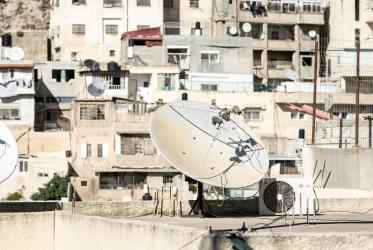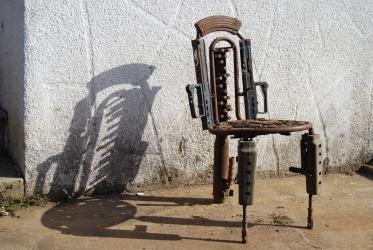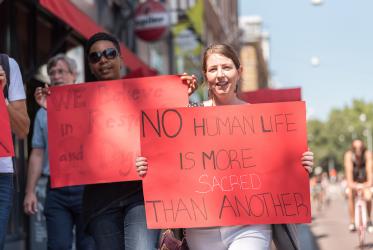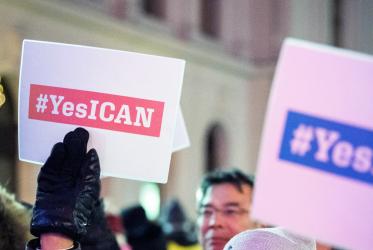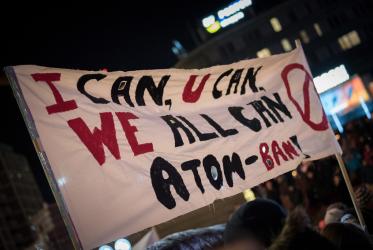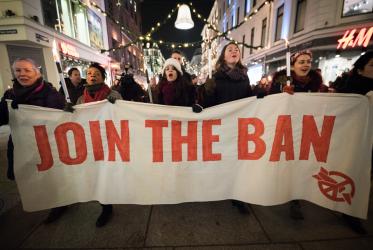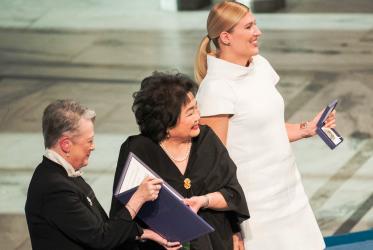Displaying 1 - 20 of 37
WCC offers input to the UN New Agenda for Peace
13 April 2023
WCC executive committee tackles public issues
07 November 2018
Ecumenical group demands for Germany to support nuclear prohibition
22 February 2018
WCC congratulates Nobel Peace Prize laureate ICAN
06 October 2017
Dozens of countries sign nuclear weapons ban treaty
20 September 2017
Ban nuclear weapons by law next year, says historic UN vote
28 October 2016
Calls grow for nuclear weapons ban
13 October 2016



